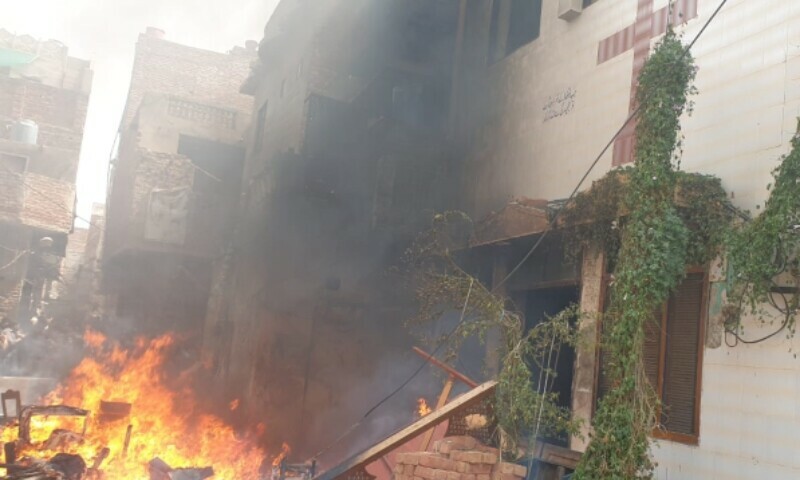
Pastor Javed Bhatti was woken from his sleep by the mosque’s loud call in protest of Christians’ alleged blasphemy, not the usual Azaan.
He had a gut feeling that something was wrong.
As other Christians began to pour out of their homes and into tiny alleyways, he gathered his family and ran to the street.
“Some were running barefoot and some fled in rickshaws. There was chaos everywhere,” he told AFP on Thursday, a day after hundreds of Muslim men rampaged through the streets, burning homes and churches.
“The children were shouting, ‘run, run, the clerics are coming! They will attack us’,” his sister Naila Bhatti added.
One of the lowest strata of Pakistani society is populated by 2% of Christians. More than 5,000 people live in Jaranwala’s Christian neighbourhood, the majority of them sanitation workers earning pitiful wages and sharing squalid homes with up to 18 other relatives.
Muslims flocked to the streets to warn and protect their neighbours as fear spread throughout the neighbourhood. The local Muslims here helped us and made an effort to save us, Pastor Bhatti said. “The crowd came from outside (this area).”
In the hopes that Christians would be spared the violence, Tariq Rasool, who lives in the same winding street as Bhatti, claimed that Muslims had quickly pinned verses from the Quran on the doors of Christian homes.
“Two women were running. I opened the door of my house for them and let them inside. They were very worried but I consoled them,” the 58-year-old Muslim said.
The mob swelled in size and anger throughout the day, with hundreds at its peak rioting through the streets. By nightfall, at least four churches and a dozen houses and shops had been burned and ransacked, according to a news agency team at the scene.
Imran Qadri, a Muslim shopkeeper, said both faiths had long lived peacefully alongside each other in the neighbourhood: “They are our brothers. They share our sorrow and joy and we share their sorrow and joy.”
He opened his home to two Christian women as they fled the foreseen destruction. “They are still inside our house. My family helped them, provided them with food and they spent the night with us,” Qadri said, standing alongside Bhatti.
Further down the street, Parveen Bibi said she was woken up by her young children screaming: “Muslims are coming to burn our houses!”
“We took rickshaws to the home of our Muslim neighbours. The door was open and we all went inside. I was accompanied by women, my two daughters-in-law and children. The women said:
‘You are safe here, don’t worry’,” she explained tearfully, standing in the rubble of her home.
A number of Christians who went back to their homes on Thursday to assess the damage reported that more than 300 people had left during the riot’s early hours, but hundreds more had left during the night and on Thursday to stay with relatives in other towns.
Police are looking for two Christian brothers who are accused of desecrating the Holy Quran after apprehending more than 100 people they believe to be connected to the violence.
Many residents are still too afraid to go back home, even though the mob has dispersed and hundreds of police are now policing the neighbourhood.
For Pastor Bhatti, returning has brought more pain for his family: “My own house was destroyed. This was our entire life’s earnings. Now how will we live here again?”
Separately, police guarded the Christian neighbourhood on Thursday, the second day of the tragic incident in Jaranwala.
“All the Christians have left their homes and taken refuge here and there,” Fayaz Masih Khokhar, a Christian man who had travelled from nearby Lahore to show solidarity with the community told the news agency.
On Thursday, government officials condemned the violence, while small protests were held in several cities calling for Christians to be protected.
“The current sad situation in the country demands that the leadership and religious figures of all religions and faiths play their key and fundamental role in safeguarding national unity,” the Bishop of Lahore, Nadeem Kamran, said in a statement.